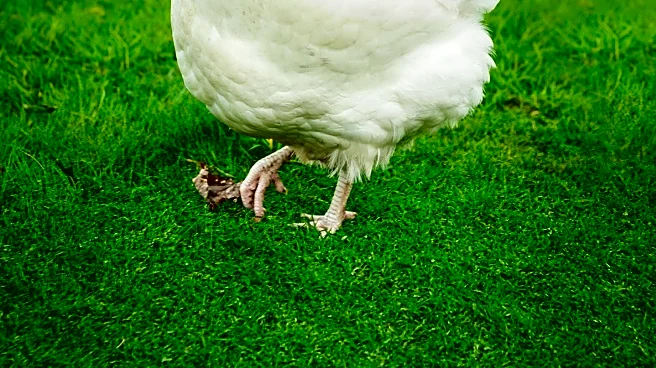What's Happening?
The UK's poultry industry is facing a significant threat from a highly infectious strain of bird flu, prompting a mandatory housing order for farm flocks. Professor Ian Brown from the Pirbright Institute
has warned that this outbreak could be the most severe yet, with 26 cases of highly pathogenic avian influenza (HPAI) H5N1 reported this season. Farmers are advised to enhance biosecurity measures to prevent the spread of the virus, which has already led to the culling of entire flocks. The government aims to reduce infection rates through the housing order, but concerns remain about the virus's potential to mutate.
Why It's Important?
The outbreak poses a substantial risk to the poultry industry, which is vital to the UK's food supply chain and economy. The mandatory housing order impacts free-range egg producers, altering production practices and potentially affecting market supply. The threat of mutation raises concerns about zoonotic transmission, which could have broader public health implications. Farmers must invest in biosecurity to protect their livelihoods and prevent economic losses. The situation underscores the need for ongoing surveillance and research to understand and mitigate the risks associated with avian influenza.
What's Next?
Farmers are expected to continue implementing strict biosecurity protocols while monitoring the situation closely. The government and industry stakeholders may collaborate on developing contingency plans for potential escalations. Research into vaccine development and virus monitoring will be crucial in preventing future outbreaks. Public health agencies might increase awareness campaigns to inform the public about the risks and preventive measures related to avian influenza.
Beyond the Headlines
The outbreak highlights the ethical considerations of animal welfare in intensive farming practices, particularly during mandatory housing orders. It also emphasizes the importance of international cooperation in managing infectious diseases that cross borders. Long-term, this could influence policy decisions regarding agricultural practices and investment in disease prevention technologies.










